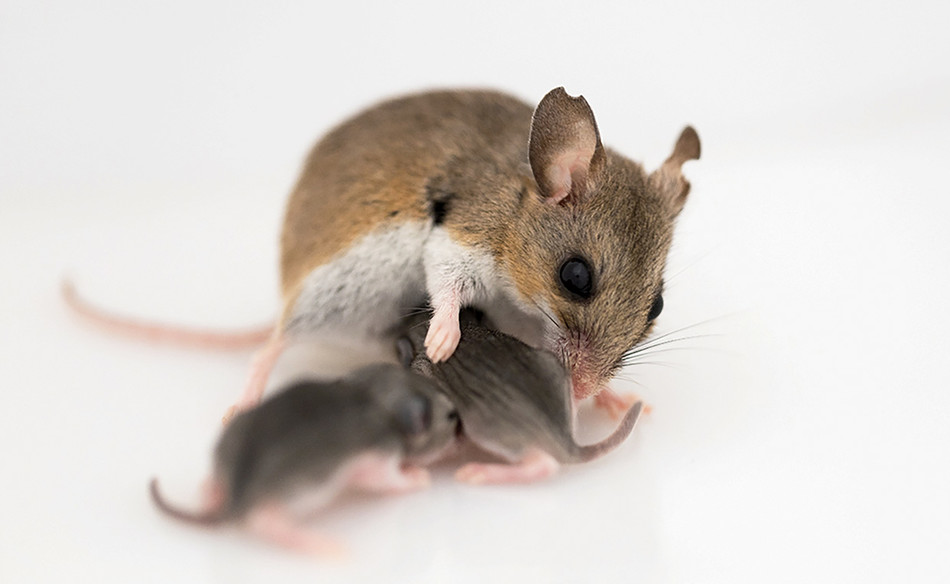The male oldfield mouse, a diminutive rodent native to the southeastern US, towers over almost all other creatures in one regard: his fathering skills. Not only is he among the less than 3 percent of males in the animal kingdom who mate with a single female for life, but he also takes on an equal share of parenting duties, building elaborate nests for his offspring, dutifully grooming and cuddling with them, and retrieving any that inadvertently stray from home.
Now a team of Columbia scientists has achieved a major breakthrough in understanding this mouse’s paternal instincts, discovering that its adrenal glands contain a previously unknown type of cell that produces large amounts of a hormone called 20⍺-OHP, which appears to make the mouse a doting dad. “The hormone from these cells was actually first discovered in humans many decades ago, but nobody really knew what it did,” says Andrés Bendesky, a Columbia neurobiologist who led the research.
Bendesky’s team made the discovery by comparing the hormonal systems of oldfield mice and deer mice, a closely related species whose males are promiscuous and do not participate in parenting. Deer mice were observed to have smaller adrenal glands that lack the special cells for boosting 20⍺-OHP production and lower levels of the hormone circulating in their bodies. But when the male deer mice were injected with extra 20⍺-OHP, they too went into dad mode, constructing nests and caring for their pups for the first time.
The Columbia researchers say their insights could have implications for understanding the mating, bonding, and parenting behaviors of other mammals, including humans. “I hope that our study motivates further investigation into the link between 20⍺-OHP and parenting in people,” says Jennifer Merritt, a Columbia postdoctoral researcher and joint first author on the paper. “We have so much to learn about the role this hormone plays.”
This article appears in the Fall 2024 print edition of Columbia Magazine with the title "Of mice and men: In search of the 'good dad' hormone."



